A Link in the Legacy
Longtime members of the Matthew Cowley Society, Paul and Alba Barker strive to be examples to their family and to care for others through their donations to BYU–Hawaii.
May 2019
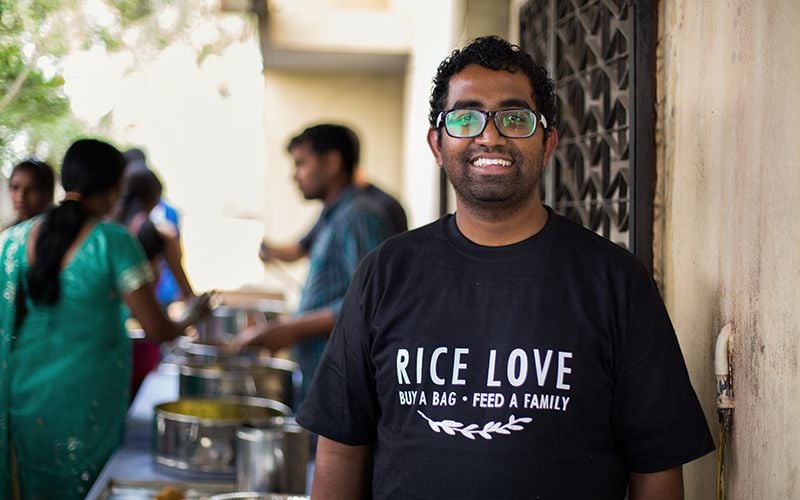
When the pilot of Coney Pulla’s flight to Honolulu announced that they would soon be arriving at their destination, Coney was shocked. As the plane began circling for a landing, Coney looked out the window at the expanse of the deep blue sea extending to the horizon, and he thought, “Where are we landing?” He hadn’t realized until that moment that he would be going to college on a small island in the middle of the Pacific Ocean.
When Coney applied to BYU–Hawaii, he didn’t know that there are multiple universities that share the BYU name or that he would be accepted to the one located on a small, remote island. He knew very little about the world outside the slums of Hyderabad, India, where he grew up. All he knew was that The Church of Jesus Christ of Latter-day Saints operated a university in America and that he was offered comprehensive financial aid to attend. For him, it was the opportunity of a lifetime.
When Coney deplaned and found out his luggage was lost, his shock turned to anxiety. Add to that the exhaustion and hunger he felt after a 34-hour trip, and Coney began to cry. An airport employee asked him what was wrong. “Why don’t you call your parents?” the employee suggested. “I don’t know how,” Coney admitted. The employee then gave Coney some money, directed him to a public phone, and showed him how to place an international call.
“I’m scared. I want to come home,” Coney told his father on the phone. His father sympathetically replied, “Son, if you want to come home, I will buy you a ticket and you can come home.” But Coney didn’t want to let his father down, and their conversation gave him the courage to press forward. He was determined to escape the cycle of poverty that had afflicted his family for generations.
The Pulla family belongs to the lowest level of India’s rigid caste system. The Hindi word for their caste is Dalit, which means “broken” or “scattered.” Technically they are outside the caste system altogether—literal outcasts—and they are often called “untouchables.” Generations of Dalit have lived and died in poverty with little chance for social or economic mobility. To this day the Dalit are suppressed and even reviled by some. Coney explains: “No matter where I went, no matter what form I filled out, whether it was for school or for a job, I was always asked which caste I belong to. People looked at me as if I could not succeed. I wasn’t given a chance because I had no money, no power, no authority.”
Despite Coney’s poverty and low social status, there were others worse off than him—and Coney took notice. As a young man, he often walked past children who lived in huts alongside a drainage ditch. These families lacked money for adequate food and education. Coney was not much better off than they were, and at the time he didn’t have any prospects for prosperity, but deep down he believed that someday, somehow, he would help those families and others like them.
Coney is the youngest of three children. His father wanted to send at least one of them to college overseas. After it didn’t work out for the older two, Coney was his father’s last hope.
At first, Coney had no desire to study abroad. At the age of 17 he began working in call centers to support himself, and when he came of age he served a full-time mission for The Church of Jesus Christ of Latter-day Saints in the India Bangalore Mission. His plan for after he returned home was to work and perhaps further his education through an online program. But Coney’s mission president, President Nichols, saw greater potential in him.
Coney remembers, “He said to me, ‘Elder Pulla, why don’t you consider going to BYU?’ I told him I wasn’t interested, but he persisted. ‘You’re going to love it,’ he said. ‘You’ll learn so much more.’”
President Nichols’s insistence left an impression on Coney, but he told his president that there was no way he could afford it. “Let me get back to you on that,” President Nichols replied. Within a month of returning home from his mission, Coney received an email from President Nichols with information about BYU–Hawaii’s comprehensive financial aid program for international students, called IWORK. Coney applied without fully understanding where it would take him.
When Coney first arrived on campus, he was bewildered by simple first-world luxuries—like his student ID that unlocked his dorm room, and the free WiFi that blanketed campus. “In India, it’s like I was in a small box,” Coney says, “but when I came to BYU–Hawaii, there was no box anymore. The whole world was opening up for me. There was an ocean of knowledge right in front of me, and I just needed to grab hold of it.”
Initially Coney chose to study computer science—partially because it was what his father wanted him to do, and partially because it is what Indians typically do. He also tried business management. After deciding against both computers and business, Coney discovered his niche: political science.
“On the first day of class the professor, Brother Troy Smith, asked, ‘How many of you are here for a degree?’” Coney recalls. “Everyone raised their hand, including me. Then he said, ‘You’re in the wrong place. Don’t come to BYU–Hawaii just to get a degree and get a job. Come here to gain knowledge. Get a degree for the purpose of blessing and changing lives around the world. That’s what the Lord wants from you.’” In that moment Coney determined to make a positive impact back in India.
After Coney graduated, he worked full-time in the BYU–Hawaii bookstore while his wife finished her schooling. In the bookstore Coney met his future business partner, Corbin Thomander, a fellow alum who shared Coney’s aspirations to do good.
Unlike Coney, Corbin had a comfortable upbringing in California, but he experienced a bohemian coming-of-age. He ran away from home when he was 16 years old and lived out of a VW bus on a journey of self-discovery. While attending BYU–Hawaii, Corbin intentionally dressed like a vagrant, begged for money on the streets of Honolulu, and slept in gutters and dumpsters. That social experiment was his way of empathizing with people who were completely destitute, and it fueled his desire to be part of the solution.
With a mutual desire to help people less fortunate than themselves, Coney and Corbin became fast friends. Upon doing some research, they learned that one in nine people in the world goes to bed each night on an empty stomach. That’s 800 million people. And India, with its 200 million malnourished citizens, is the country most afflicted with food insecurity.
Coney and Corbin developed a plan to collect discarded jute rice sacks in India, repurpose them into artisan totes and backpacks, and sell them for a premium in the United States. Then for each product sold, they would use some of the profit to purchase and donate a kilo of rice to an Indian family in need. “For those living in poverty, giving rice is equal to giving life,” says Coney. “It symbolizes love. So we called our idea Rice Love.”
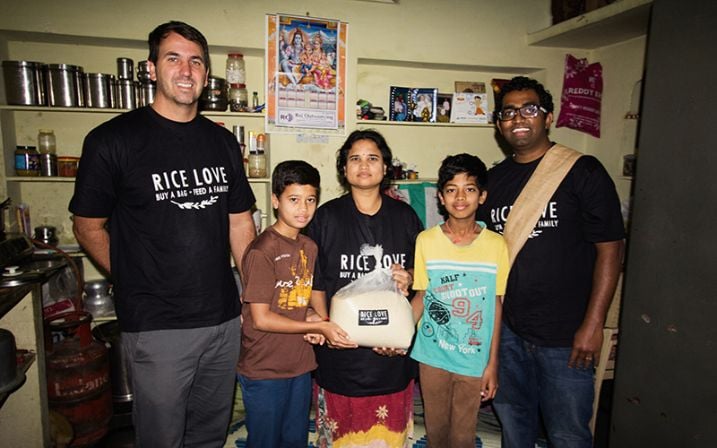 Coney and fellow BYU–Hawaii alum and business partner Corbin Thomander (left) share a passion for helping people less fortunate than themselves.
Coney and fellow BYU–Hawaii alum and business partner Corbin Thomander (left) share a passion for helping people less fortunate than themselves.
Coney and Corbin entered their idea in Empower Your Dreams, a business plan competition hosted by BYU–Hawaii’s Willes Center for International Entrepreneurship. Their plan won first place in the social category and took home $5,000 in prize money, which they used to start their business. Coney moved back to India to oversee operations on the ground. Within a month, Rice Love manufactured and sold 200 products. Coney personally donated the first 200 kilos of rice in his hometown to the very families he imagined helping years earlier. Since then, the company has donated over 50,000 kilos of rice to more than 2,000 families throughout India. Each bag of rice is personally delivered, each recipient’s story is documented on the Rice Love website, and each product sold comes with a unique tag number that customers can use to look up the photo and story of the family they fed.
For years Coney had to work two or three other jobs to support his family while overseeing Rice Love. Now he is able to devote all his work time to the company. Rice Love’s first year of operation generated $45,000 in revenue; now the company brings in nearly $2 million annually and employs 12 people in India, Hawaii, and Utah. “Our ultimate goal is to donate 1 million kilos of rice to families in need,” says Coney. “We are hoping to make a global change on hunger, doing it one bag and one meal at a time.”
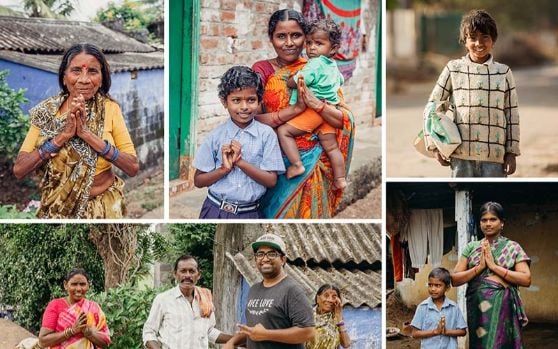 For every product that Rice Love sells, it donates a kilo of rice to an Indian family in need. So far it has donated over 50,000 kilos of rice to more than 2,000 families throughout India.
For every product that Rice Love sells, it donates a kilo of rice to an Indian family in need. So far it has donated over 50,000 kilos of rice to more than 2,000 families throughout India.
With the impact that BYU–Hawaii has had on his life, Coney has become a champion for education within the Church in India. “There have been many people asking me for help,” Coney says. “People ask me, ‘How do I apply to Church schools?’ ‘What are the scholarship opportunities?’ ‘What should I do with my life?’ There are so many members in my country who just need more information. There are people who would be amazing if they only had the opportunity.”
Coney has been able to help a few individuals find their way into Church schools, and he is now working with the young single adults in his stake to organize firesides to spread information on Church education.
Coney has also returned to BYU–Hawaii to attend the university’s annual Asia Pacific Career Conference. There he talked about internship and employment opportunities with Rice Love, shared his personal story, and encouraged more students to return to their home countries and serve others.
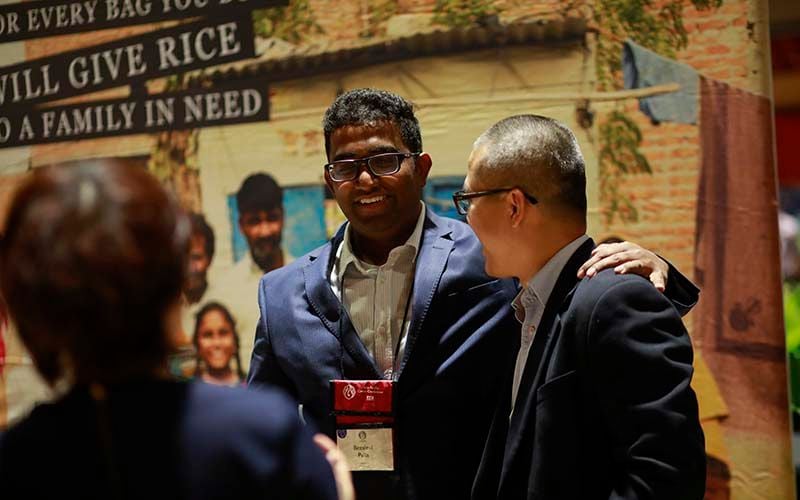 Coney returned to BYU–Hawaii to share his personal story and encourage more students to return to their home countries and serve others.
Coney returned to BYU–Hawaii to share his personal story and encourage more students to return to their home countries and serve others.
Back when Coney was first moved to compassion for the impoverished people of his country, he couldn’t see the end from the beginning. Through the support of mentors, friends, and the donor-funded IWORK program, Coney has traveled far on the path to fulfill his inspired dream.
“BYU–Hawaii has shaped my life,” says Coney. “It gave me skills, but I also found my purpose there. I found what the Lord expects of me. I engraved the school’s motto in my heart: ‘Enter to learn; go forth to serve.’ I made sure to gain intelligence and knowledge to bless the lives of others.”
To the donors who help fund the university and the IWORK program, Coney says: “I want to say thank you. I’m so grateful, from the bottom of my heart, for what you did for me. You can’t fully understand how your donations affect people. With your donations, I was able to break the barrier of my low social status, to gain an education and learn skills I never thought I could learn, and to use those skills to bless more than 2,000 families so far.”
Corbin says of his business partner, “If there ever was a graduate that David O. McKay envisioned to help spread peace in India, it would be Coney Pulla.”
Every donation to BYU–Hawaii’s IWORK program supports students like Coney: young men and young women with able minds, loving hearts, and ambitious spirits who just need a little help and a BYU–Hawaii education to realize their potential. And when a donor aids a student, that act is multiplied as the student serves others. Mahalo nui loa to all who support BYU–Hawaii.
Make a Gift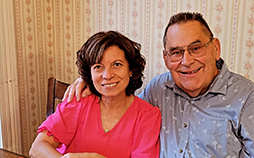
Longtime members of the Matthew Cowley Society, Paul and Alba Barker strive to be examples to their family and to care for others through their donations to BYU–Hawaii.

The IWORK program gives international students who can’t afford college a chance to attend BYU–Hawaii. For Soumya, a convert from India, IWORK also gave him a second chance at a career and an eternal family.
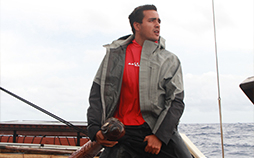
As he keeps his eye on his goal, BYU–Hawaii student Kahia Walker is doing all he can to learn about and gain skills in voyaging.